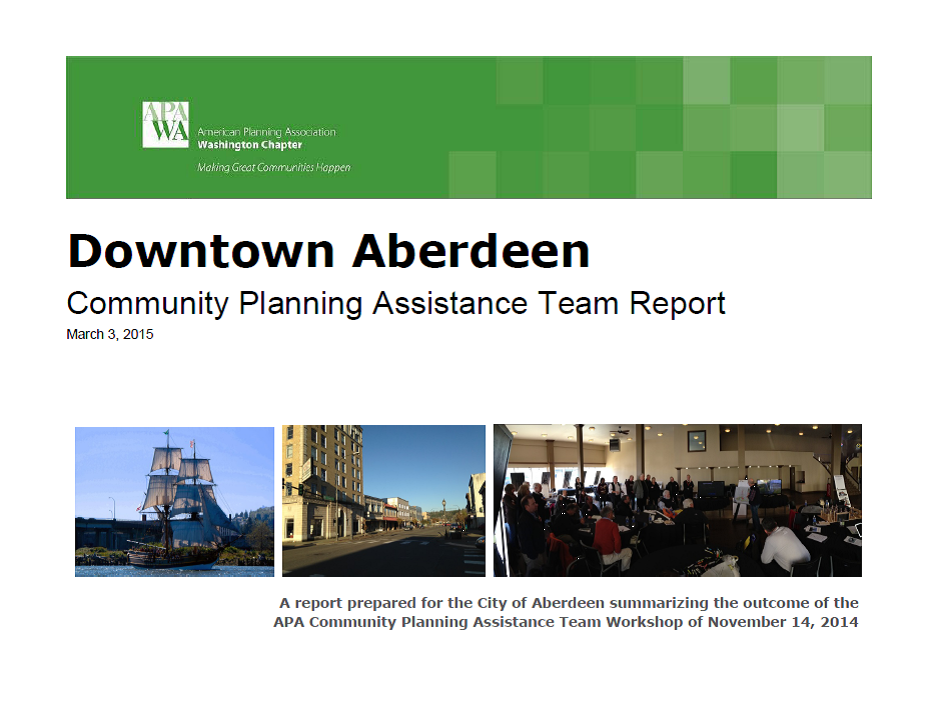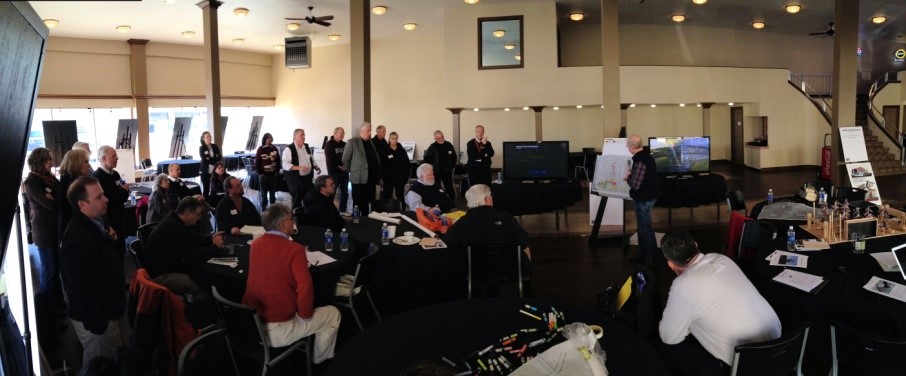- About Us
- Events & Training
- Professional Development
- Sponsorship
- Get Involved
- Resources
Washington's Community Planning Assistance Team Seeking ProjectsWashington’s Community Planning Assistance Team (CPAT) program provides community design assistance to underserved towns and communities throughout the state. Established in 2005, the CPAT program has conducted community based events in Sultan (2005), Cle Elum (2006), Concrete (2007), Zillah (2007), Morton (2007), Royal City (2009), Goldendale (2009), Woodland (2009), Prosser (2010-2011), Ocean Shores (2012), Seattle neighborhoods (2012 and 2013), and Aberdeen (2014). Each of these projects had their own distinct focuses and goals. (The final reports from these efforts are available on WA-APA’s CPAT webpage) CPAT members also facilitated a full day workshop in Belltown in April as an AICP workshop as a part of the National APA conference. CPAT’s team of experts include planners with expertise in land use, transportation, economic development, urban design, natural resources, parks and recreation, historic preservation, and other areas. In addition, CPAT is affiliated with the planning schools at Eastern Washington University and the University of Washington. With these resources, CPAT is accustomed to working with diverse community groups and finding progressive solutions. We are now seeking new projects for 2016! CPAT offers varying levels of assistance. Upon submission of a completed the CPAT Request for Assistance form, CPAT's Technical Advisory Committee will review the request and determine whether the applicant qualifies for assistance, and if so, what level of assistance is appropriate. CPAT levels of assistance range from a consultation to various types of community-based events and follow-up activities. The community-based events are typically full day planning workshops or “charrettes” that are located in the applicable community. For example, last year’s event in Aberdeen included (1) Mayor’s Welcome, (2) round robin discussion of issues with break out groups, (3) working lunch, (4) action planning (planning team to develop priorities and implementation strategies, (5) CPAT team work session (develop action plan), and (6) presentation/open house.
|



